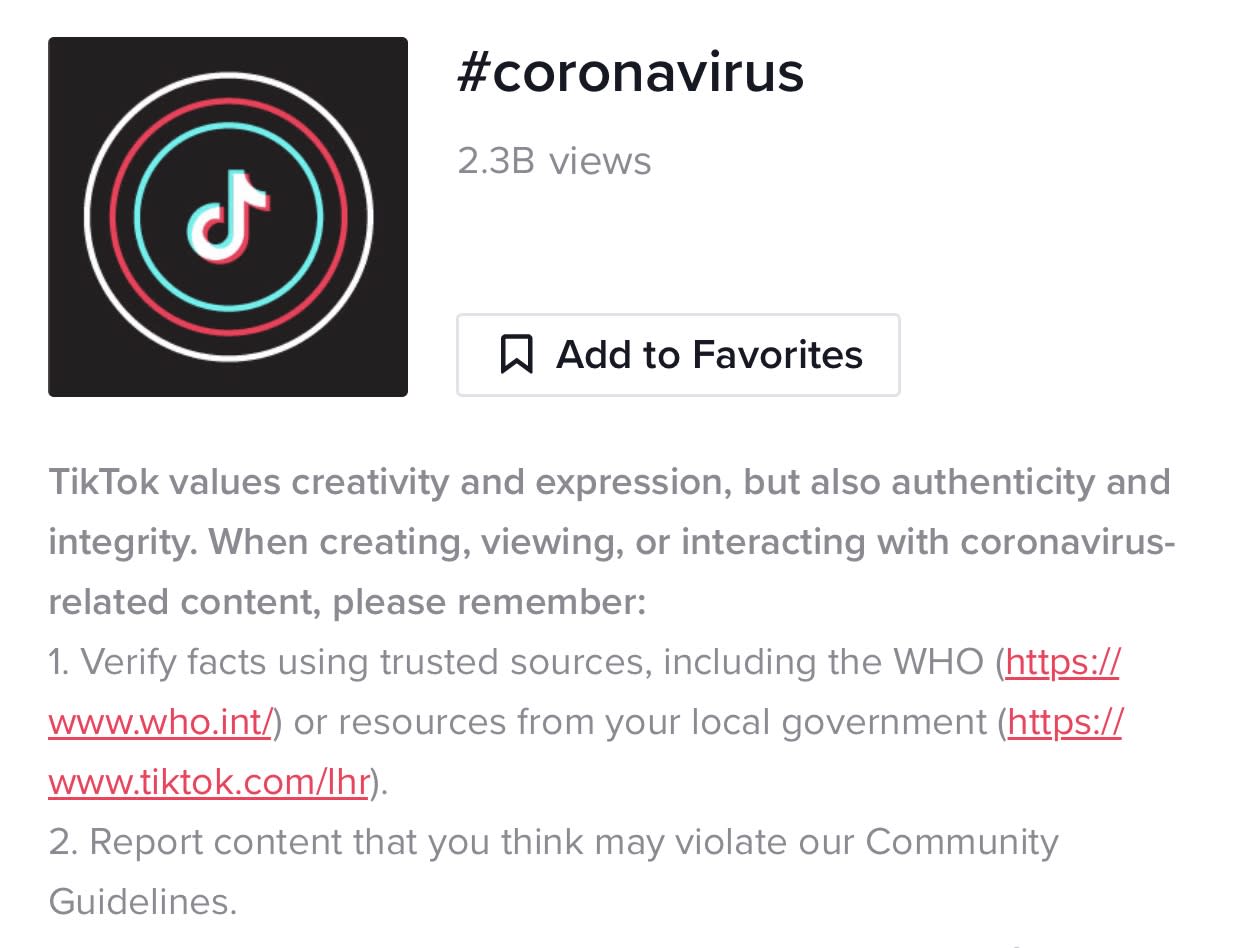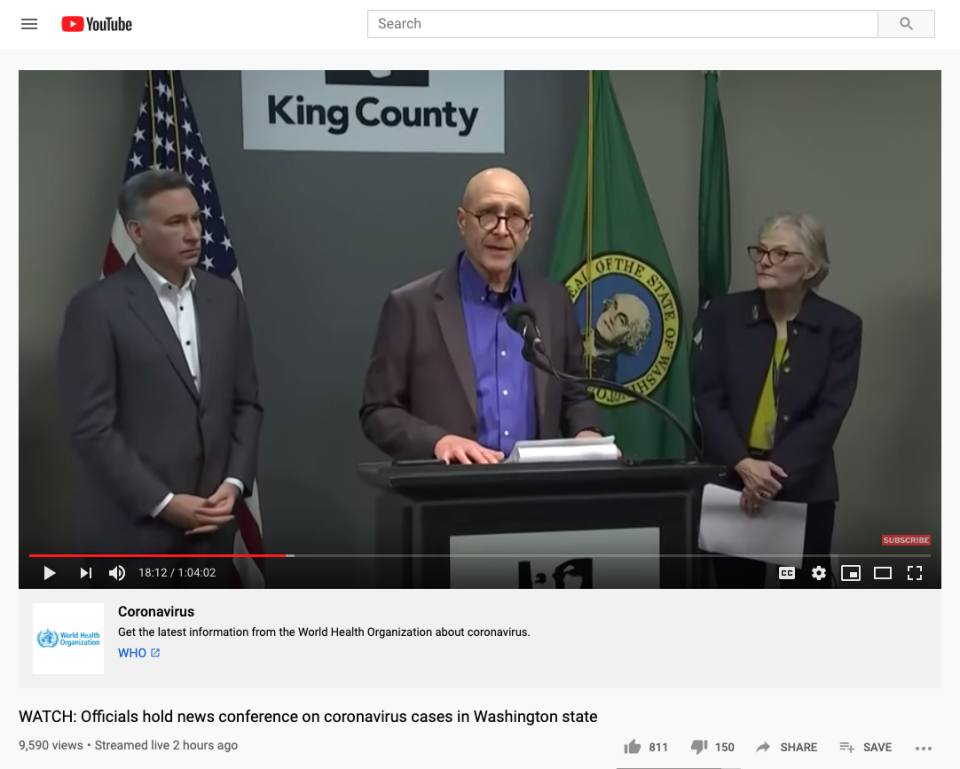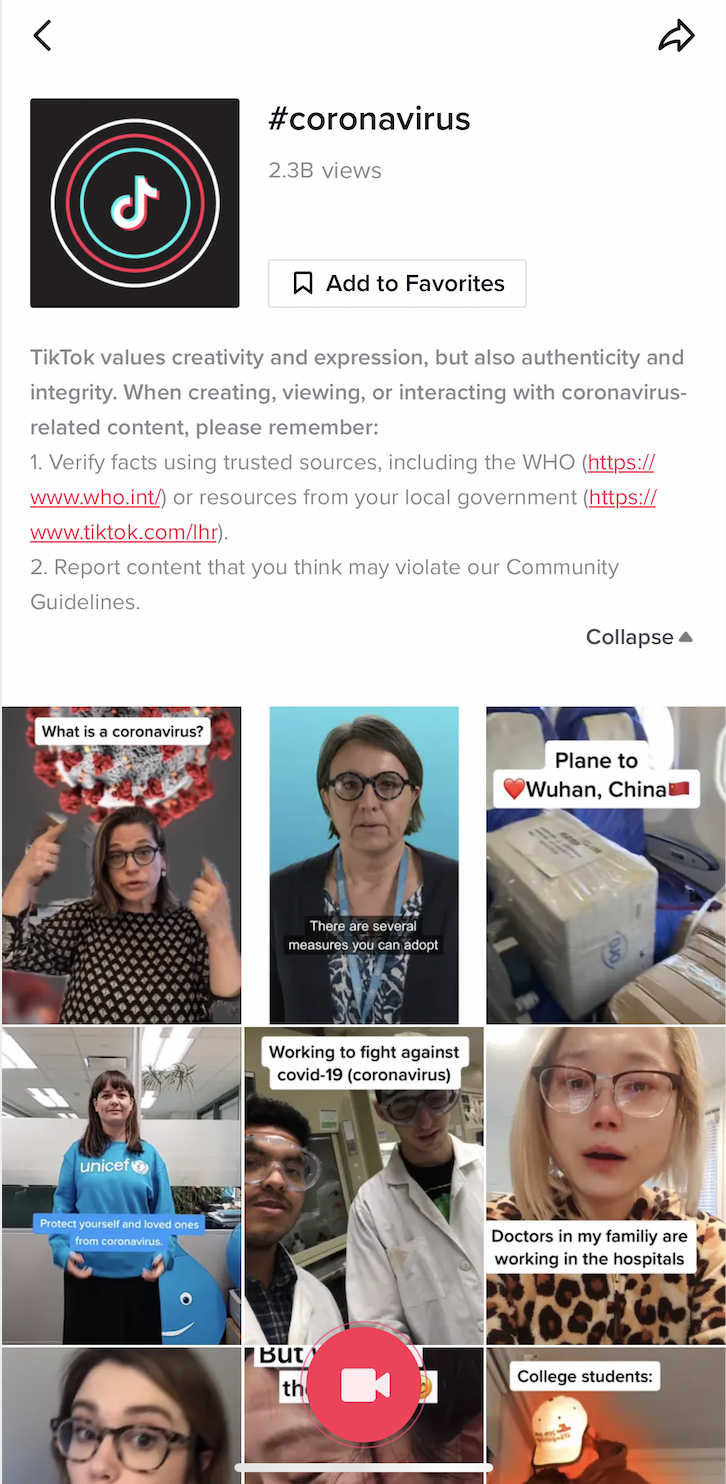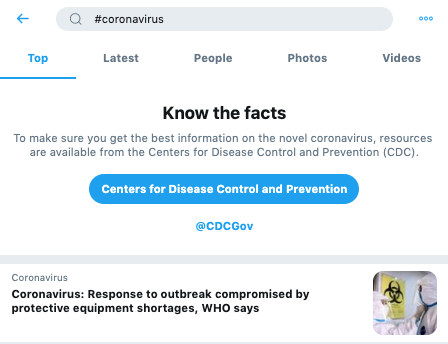Coronavirus 'infodemic' prompts WHO to join forces with YouTube, TikTok to combat misinformation

As confirmations of coronavirus cases continue to make headlines worldwide, many are turning to their newsfeeds for the latest information. But while news organizations are combatting conspiracy theories about the virus’ origin, social media platforms are finding themselves increasingly responsible for fighting an influx of misinformation about coronavirus — and the dangers that come with it.
The World Health Organization (WHO) refers to the phenomenon as an “infodemic,” explaining to Yahoo Lifestyle that an over-abundance of information, accurate or not, makes it hard for people to “find trustworthy sources and reliable guidance when they need it.” However, companies like YouTube and TikTok are getting ahead of it by teaming up with WHO in order to ensure that its users are not only protected from deceitful information, but also being pointed in the direction of accurate updates.
Content produced by a number of naturopathic physicians on YouTube, for example, drew initial attention to the current dangers of misinformation, with Business Insider reporting that the “micro-influencers” on the site were recommending “near-lethal doses of vitamins” in order to prevent coronavirus. The videos mentioned in the article have since been deleted on the basis of violating YouTube’s Community Guidelines.
The policy to reduce and/or remove content that includes harmful misinformation is part of a larger effort by YouTube to maintain a responsible platform, according to a YouTube spokesperson. The platform also puts an emphasis on ensuring that a piece of content that is prone to misinformation be presented in context. In this case, context comes from the WHO.

”Our thoughts are with everyone affected by the coronavirus around the world,” a YouTube spokesperson tells Yahoo Lifestyle. “We’re committed to providing timely and helpful information at this critical time, including raising authoritative content, reducing the spread of harmful misinformation and showing information panels, using WHO data, to help combat misinformation. We also have clear policies that prohibit videos promoting medically unsubstantiated methods to prevent the coronavirus in place of seeking medical treatment, and we quickly remove videos violating these policies when flagged to us.”
TikTok is using similar tactics to ensure that misinformation isn’t spread on the app, by encouraging users to report content that they believe contains misleading information. “Our Community Guidelines do not permit misinformation that could cause harm to our community or the larger public. While we encourage our users to have respectful conversations about the subjects that matter to them, we remove deliberate attempts to deceive the public,” a TikTok spokesperson tells Yahoo Lifestyle.
Additionally, the platform has an in-app notice that appears under the #coronavirus hashtag, encouraging users to verify facts with trusted sources, including the WHO.

WHO also launched its own TikTok channel, hoping to become a source of shareable, accurate information on the platform. “We are joining @tiktok to provide you with reliable and timely public health advice!” the caption on WHO’s first TikTok post reads. A WHO spokesperson tells Yahoo Lifestyle that the new channel was made in an effort to “reach the right audience (the right community, the right age group, etc), as well as to detect the spread of misinformation on the new coronavirus.” The spokesperson adds, “We understand that different platforms might have their specific audience, hence [why it is] important to make trustworthy information available where people are looking for it.”
The organization has made similar efforts on Twitter, Facebook and Tencent (China’s equivalent of WhatsApp). In countries most affected by COVID-19, WHO is making additional efforts to not only create its own content, but also connect with relevant influencers on the platforms to help spread its message.
Platforms where WHO already had an account are doing their part to highlight the organization’s posts. According to Twitter, the platform has even expanded its search prompt feature so that an individual is immediately met with authoritative health information from the proper sources when searching for #coronavirus.

“At present, we’re not seeing significant coordinated attempts to spread disinformation at scale about this issue,” Twitter’s blog reads. “However, we will remain vigilant and have invested significantly in our proactive abilities to ensure trends, search, and other common areas of the service are protected from malicious behaviors.”
Read more from Yahoo Lifestyle:
Amazon pulls products that falsely claim to kill the coronavirus
Woman whose family lives in Wuhan is using 'first-hand notice' to combat coronavirus misconceptions
Want daily pop culture news delivered to your inbox? Sign up here for Yahoo Entertainment & Lifestyle's newsletter.



